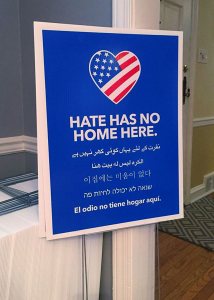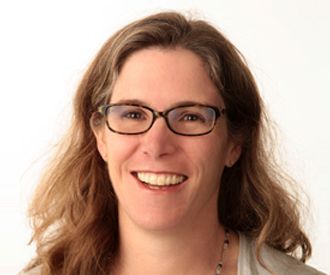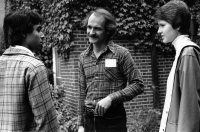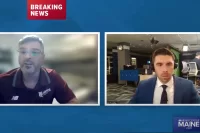
Bates in the News: Jan. 13, 2017
Tim Ohashi ’11
An analytics whiz kid who grew up idolizing the Capitals is now helping coach them — The Washington Post
Tim Ohashi’s amazing journey, writes Dan Steinberg of The Washington Post, took him from “obsessing over sports as a kid in Bethesda to studying psychology and mathematics at Bates to landing an internship and then a full-time job” with his favorite hockey team, the Washington Capitals.
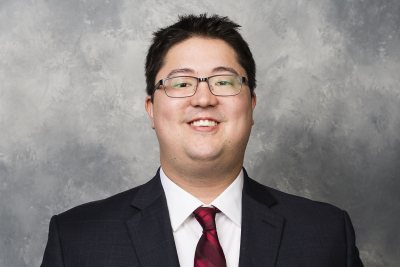
Tim Ohashi ’11 is the hockey operations analyst for the Washington Capitals of the NHL. (Photo by Patrick McDermott/NHLI via Getty Images)
Ohashi is the hockey operations analyst, a multitasking job comparable to “an NFL quality-control coach,” Steinberg writes.
“I could have told you probably 20 years ago that this was exactly where I’d like to be,” Ohashi says. “I never in a million years would have guessed I’d be here.”
He got his gig the old-fashioned way, blanketing the team with resumes after getting a master’s in sports industry management at Georgetown.
And though he scored just one career hockey goal, in an 18-2 win for the Bates club team, Ohashi has proven to be “a genius” in his work, says Jay Beagle, a Capitals center. “Statistically, he’s the best.”
Kate Haesche Thomson ’00 and Mark Thomson ’03
Signs with a message of love to combat hate, and maybe start a conversation — The Philadelphia Inquirer
After the presidential election, Kate Haesche Thomson ’00 and Mark Thomson ’03 “had been alarmed by the stories” of harassment and intimidation, writes Aubrey Whelan of the The Philadelphia Inquirer.
Some incidents were close to their home a few miles north of Philadelphia in Glenside, Pa.: “swastikas scrawled in bathrooms at Council Rock High School North and racist text messages sent to University of Pennsylvania students.”
Since then, the Thomsons have become a distribution hub for a phenomenon: the “Hate Has No Home Here” yard sign that had appeared in 29 states as of late December.
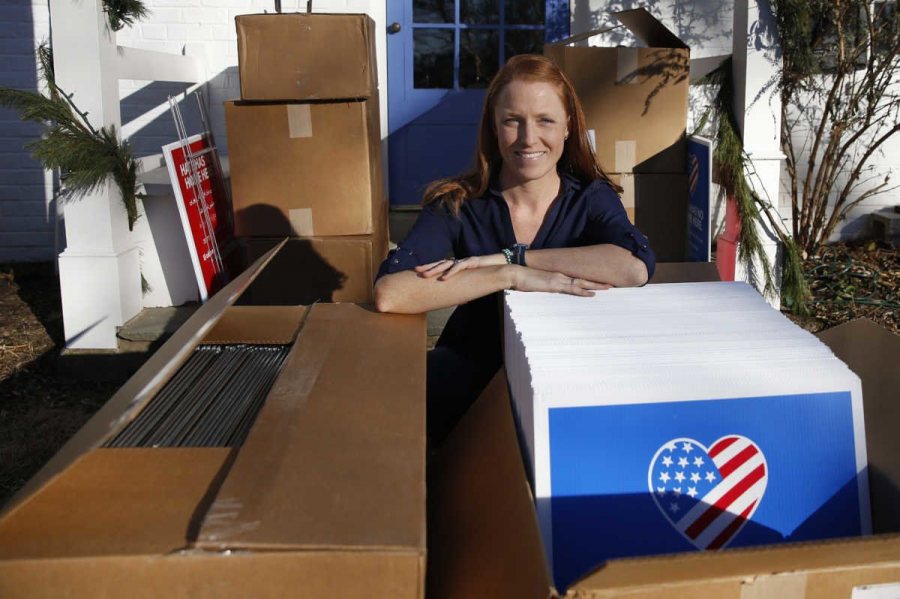
Kate Haesche Thomson ’00 poses with some of the signs that read “Hate Has No Home Here” in several languages. (Photograph by David Maialetti/Philadelphia Inquirer)
It started when Kate posted a Facebook note asking if anyone wanted one.
A few signs became a lot more, and at the time of the Inquirer‘s story, they’d handled local requests for more than 1,800 signs that now “dot the roads in clusters” in their community.
“It just blew up so fast,” Kate says. And as of Jan. 13, their number is more than 5,000 signs.
Putting a sign out or wearing a pin won’t stop hate, Kate says, but as a marketing consultant she knows that “exposing people to a simple, memorable message can help it stick in their minds,” writes Whelan.
Kate hopes the signs can help facilitate conversations. “Having conversations about what constitutes hate is progress. Feeling empowered to do more is progress.”
Caitrin Lynch ’89
Practical and life lessons from a textile mill — South Coast Today
In an op-ed in South Coast Today, anthropologist Caitrin Lynch ’89 described how she “shelved” her college-professor routine and “went to work in a textile mill” in 2016 to do research for her new book.
As an anthropologist, Lynch’s “bread and butter” skill is “understanding how people make sense of the world they inhabit.”
Even so, Lynch’s mill year drove home “the value of immersing ourselves in new perspectives.” Regardless of “our formal education” or “our political orientation or family backgrounds, each of us would benefit from seeing the world through the eyes of people unlike ourselves,” she wrote.
Lynch learned practical skills and got the big picture, too, from “how to operate machines that move in mysterious ways” to “what it means for a business owner to keep a business alive when odds are against its survival.”
WRBC
Radio Garden lets you tune into a world of global broadcasts — NPR
It was a throwaway mention, but kinda cool, when freelance journalist and radio producer Deepak Singh mentioned the Bates radio station, WRBC-FM, in his NPR essay about Radio Garden.
Behaving something like Google Earth, Radio Garden lets you spin the globe to tune into radio stations worldwide.
Singh writes: “I zoomed into the northeast part of the United States. And then a radio station started playing. On the bottom left side of the screen it said, ‘Lewiston, United States.’ This is about 30 miles from Brunswick, Maine, where I now live. On the bottom right side, it said WRBC. The Bates College radio station was playing.”
(Note to readers: We loved the site but couldn’t get WRBC to play!)
